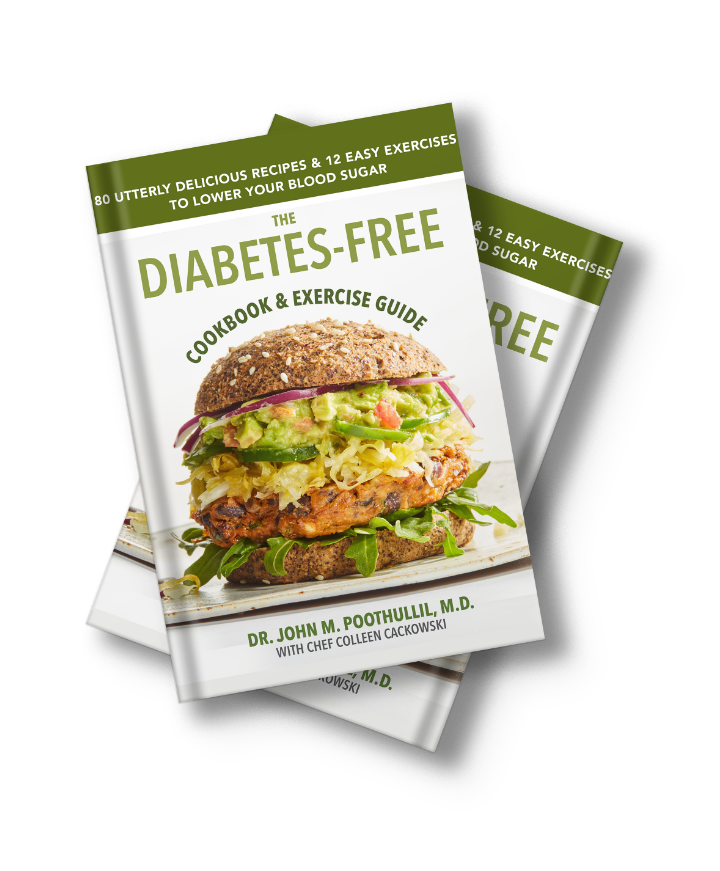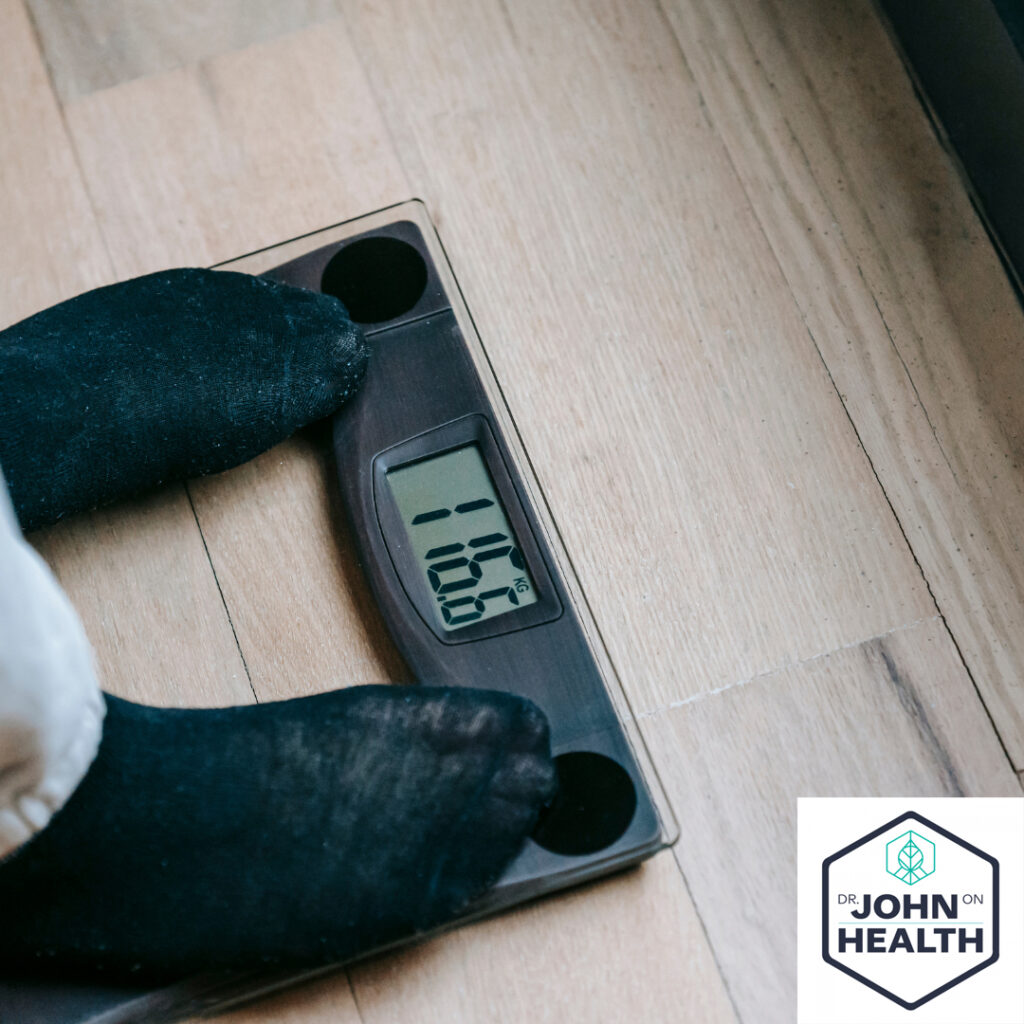This article was originally posted in the USA Daily Post.
Many people set a goal of losing weight after the start of each New Year. If you want to commit long-term to a new diet and eating habits, the best way to do it is to reconnect with your authentic weight. I believe that every person has access to this wise method for determining if you are carrying too much fat in your body. Being overweight sets the stage for the switch from glucose to fatty acids as the fuel your muscles burn, leading to high blood sugar and potentially Type 2 diabetes.
My method of losing weight is what I call “feeling your authentic weight.” Perhaps you have never thought about your weight in these terms, but once you begin reflecting on it, and being honest with yourself, you will develop a good sense of what your weight should be. Becoming mindful of your authentic weight connects you to your brain’s way of signaling that you are exceeding the weight that is right for you.

When you are in tune with your authentic weight, you will immediately sense it when you gain a few extra pounds because you start to feel uncomfortable at first. Your stomach feels bloated, you may feel some muscle pains, or you may feel slower and tired more often.
When you exceed your authentic weight, you will usually find yourself thinking something like, “Gee, I’m getting heavy. Maybe I need to lose a few pounds.”
This intuition is your signal that it is time to lose weight. Unfortunately, most people tend to rationalize their weight gain once they exceed their authentic weight by a few pounds. They attribute it to stress, aging, busy days at work, family obligations, lack of time to exercise, the discovery of a new food they love to eat, or simply that other people around them are gaining weight, too. Such rationalization becomes increasingly convincing over time because your brain tends to believe ideas it repeats.
Your authentic body weight is a measure of the total mass of all components of your body including bone, muscle, organs, blood, fat, and water. The role of each of these components in contributing to one’s weight differs in every individual in the world.
You could be tall and small-boned with lots of muscle, or short and big-boned with regular muscle—and weigh the same. Only you can intuitively know your authentic weight based on what your brain assesses and tells you (if you are willing to listen).

Your authentic weight can also change as you exercise and age because the contributions of each component of weight can change. If you begin working out and adding muscle, you might gain muscle weight but your brain knows you are still in your authentic range because it takes into account your extra muscle mass. If you are aging and losing muscle, but gain 10 pounds in body fat, your brain will sense that your authentic weight is now skewed towards fat, even though you may weigh the same.
So begin sensing what you believe is your authentic weight. For most people, it is the weight you were when you were in your late teens or early 20s.
Here are some commonly asked questions regarding weight gain and how to avoid it.
What causes weight gain?
Weight gain in an adult is the result of fat produced from excess food calories.
Why not use calorie restriction for weight control?
Voluntary calorie restriction, fasting, or medications can result in weight loss but not in weight maintenance because you can’t ensure a timely intake of all needed nutrients. Nobody knows the nutrient concentration of foods you eat, the nutrient needs of the body, or the available reserves of nutrients at the time of your meal.

How can I decide how much food I need to consume?
The sensation of hunger is created when the body needs nutrients, not energy because there is no energy-counting mechanism in the mouth, the location of food entry to control your food intake. However, the brain creates the sensation of enjoyment when needed nutrients are detected by sensors in the mouth. The intensity of enjoyment is reduced after a sufficient amount of food is consumed, indicating satisfaction with the intake of that food. So, the key is to eat what you enjoy but more importantly, enjoy what you eat. This means that you should stop eating that food when the intensity of enjoyment drops during a meal. That is your signal that you have had enough food.
How can I prevent weight gain?
Consuming complex carbohydrates in the form of grains and grain flour products is the major cause of weight gain. Before the epidemic of obesity started about 60 years ago, grains and grain flour products contributed less than a third of daily food energy intake. So, if you can minimize the intake of grain-based foods you can prevent unwanted weight gain. Your aim should be to maintain your authentic weight, which is the weight you have when your fasting blood glucose, triglyceride, and cholesterol levels are normal, regardless of your physical appearance or classification based on weight tables of BMI charts.
How can I know If I am eating correctly?
Check your weight once a day. If there is a wide fluctuation, review the previous few meals and make adjustments. Sometimes it helps to reduce food intake in anticipation of expected overindulgence during a celebration. Accept that occasional overconsumption and corrections as normal. But overall, aim to be at your authentic weight.


Don’t let Type 2 diabetes or pre-diabetes control your life – start a delicious new journey to a healthier, happier you today!

Discover how you can live a diabetes-free life with Dr. John’s groundbreaking cookbook and exercise guide. With over 80 appetizing low-carb recipes created by Chef Colleen Cackowski, you’ll never miss the high-carb, high-sugar foods of your past.
Every recipe nourishes your body and keeps your blood sugar levels in check so you can enjoy tasty, satisfying meals. Dr. John also offers 12 easy-to-do exercises to boost your flexibility and balance and keep you healthy as you age.
What people are saying…
Filled with tons of easy-to-make meals and encourages enjoyable meal planning for moms like me. I highly recommend this book to diabetics and families trying to live and eat healthily. —Maria Chalissery, M.Sc., Diet Technician
If you are looking for ways to improve your health and add more zing to your meals, these recipes are exactly what you need. —Jyoti Veeramoney, Chef, Certified Yoga Instructor
These exercises are great because they focus on dynamic movement that improves joint range of motion and flexibility. They require no equipment, build core strength and stabilization, and incorporate movements that can correct posture, which can decrease the risk of falling. —Sophia LaValle, NASM Certified Personal Trainer


